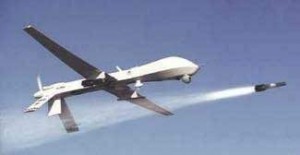With the NATO action in Libya winding down, now seems to be a good time to take stock of the debate over the legality and practical implications of the intervention. What are the merits of the major legal arguments? What are the lessons for the future?
With respect to legality, the debate continues and has both international and domestic features, but I’ll focus exclusively on the former in this post. Here, Security Council Resolution 1973 has been the focal point because it authorized “all necessary measures” to protect civilians and civilian-populated areas under threat of attack from Gaddafi’s forces, and was the asserted basis for NATO’s intervention. The argument in favor of legality basically goes like this: Resolution 1973 was a permissible use of the Security Council’s powers under the U.N. Charter to “take such action by air, sea, or land forces as may be necessary to maintain or restore international peace and security,” and NATO acted in accordance with the Resolution by using only “necessary measures” to protect civilians from Gaddafi. I think the argument is pretty good. If NATO had acted without Security Council approval, as it did in Kosovo in the late 1990s, the international legal questions would be far more problematic. But even with Resolution 1973, legality is debatable. First, it’s not entirely clear that Libya’s internal conflict necessitated military action to maintain or restore “international” peace and security within the meaning of the Charter. Perhaps the fight between Gaddafi and the rebels would have spread across borders or sent an internationally destabilizing message of impunity if NATO had not intervened. Yet Libya was not a threat to international peace and security in the classic form of an armed conflict between states. Insofar as the U.N. Charter envisions that type of conflict as the basis for Security Council action, NATO’s action was problematic. Second, it is not entirely clear that NATO always honored the limits of Resolution 1973—some have reported that NATO bombings included military targets that were far removed from civilian populations and unlikely to present any direct threat to them. Whether eliminating those targets was “necessary” to protecting Libyan civilians is also debatable.

